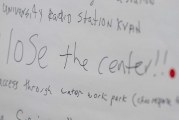The controversial day center, operated by Share, has drawn numerous complaints from neighbors who say it has brought a rise of crime to the area
Editor’s note – This is the third in a series of stories about issues with the Vancouver Navigation Center, operated by Share, in Vancouver. This story offers a view of what life is like inside the center on a daily basis.
VANCOUVER — On a Tuesday morning at 10 a.m., the Vancouver Navigation Center is already buzzing, inside and out. The day center, operated by Share, offers Vancouver’s homeless population a rare and valuable commodity: showers and a chance at clean laundry, so long as you’re there early enough to sign up.
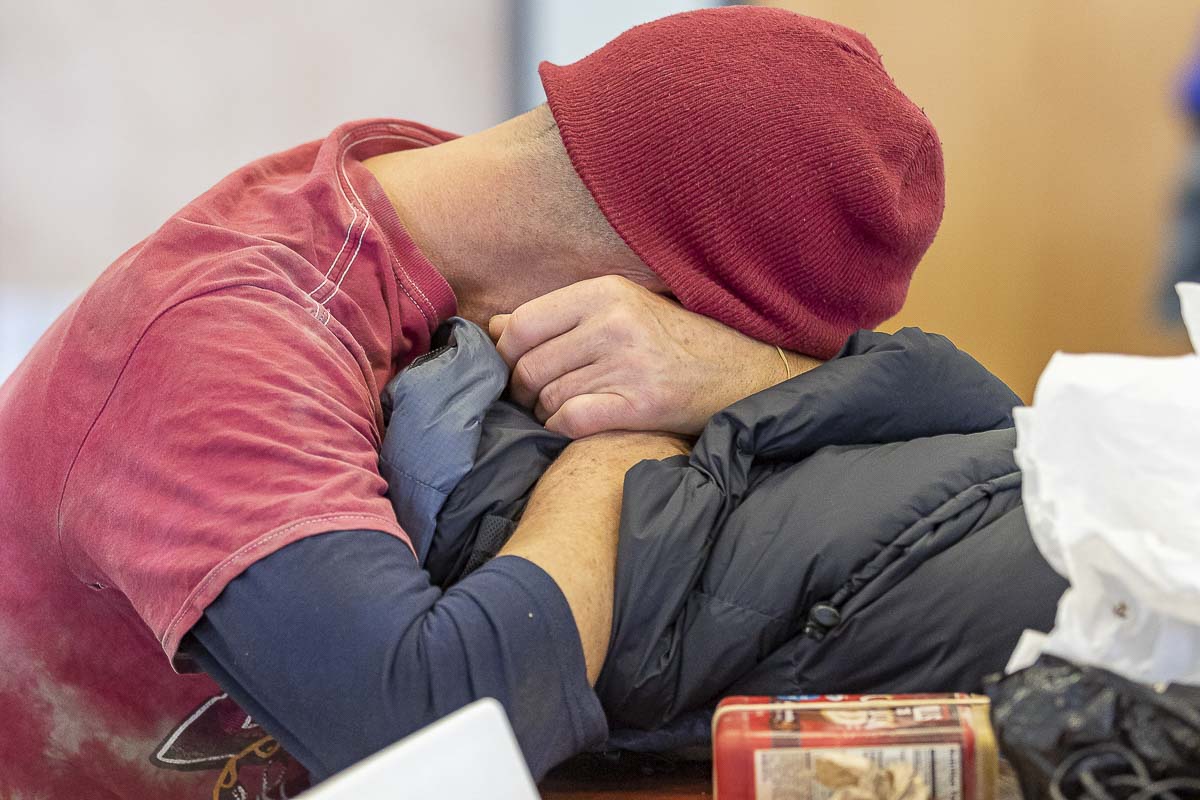
The laundry and shower area is easily the busiest at this hour, with carts loaded with dirty and clean clothing being exchanged at a wall of washing and drying machines. There are also private bathrooms, a rarity for most of this population. While the day center doesn’t serve regular meals (most of the homeless leave at lunchtime to get a free meal from a church up the street), there is a table with bagels and fresh fruit, and usually free coffee or water, depending on what kind of donations have come in.
Inside the main sitting area, people meander or sit and watch a television in one corner. A row of computers allow people to access the Internet to perform job searches, look for housing, or just catch up on social media. At the main counter there’s a secure place for people to hook up and charge their phones without fear of having them stolen. Still, one resident says she left her phone in the bathroom and someone returned it to her the next day.
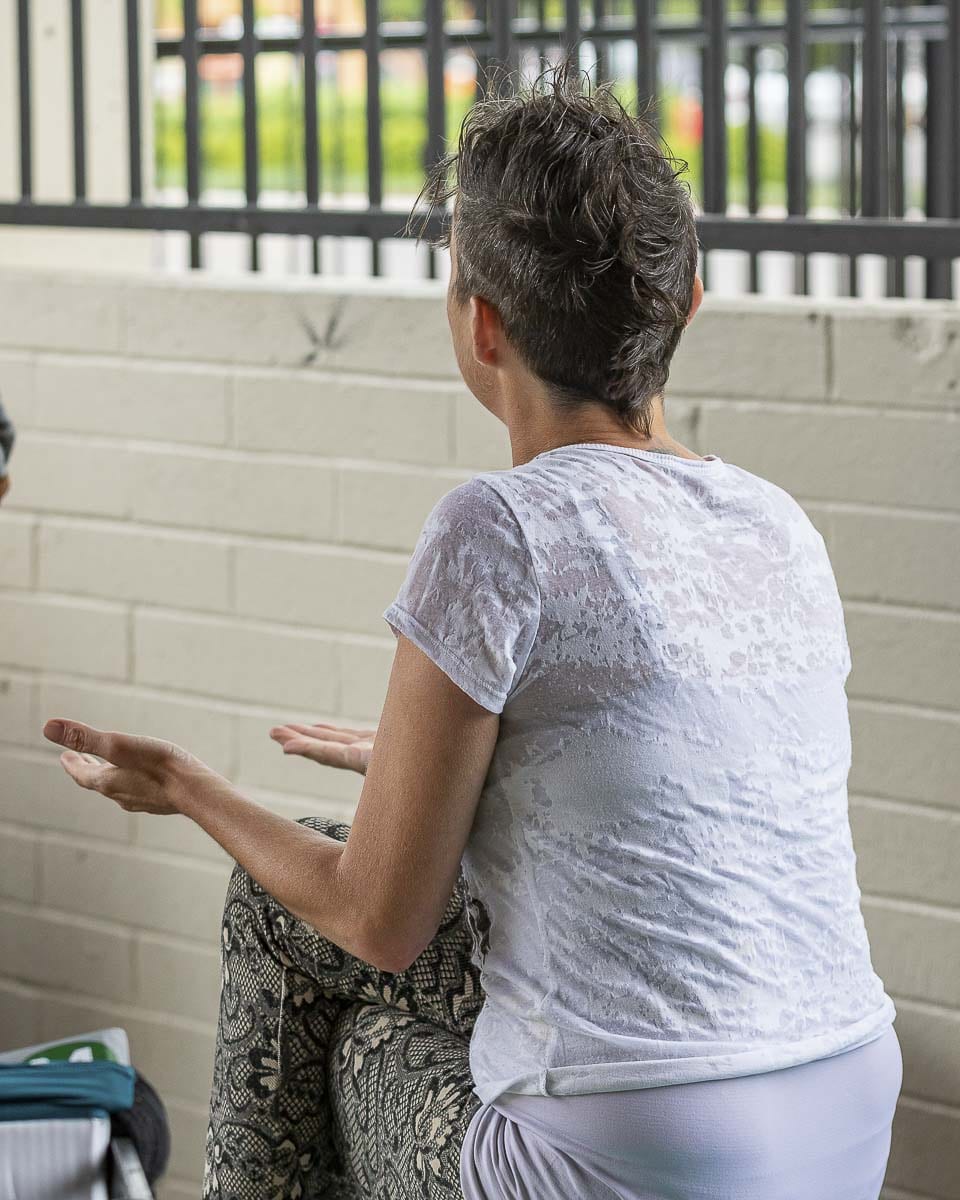
“Most of the people who come here look out for each other,” says “Catherine,” who has been homeless for a few months and didn’t want her real name used because she had fled an abusive relationship. “They’ve made me feel safe and helped me on my job interviews. They just … they take care of me.”
At the front counter Share employees take turns checking people in, taking possessions and even a box apparently containing used drug needles to be disposed of. Things seem a bit random and chaotic, but not out of control.
“They just started this operation,” says Deborah Brown, homeless for the first time at the age of 78 after being priced out of her apartment. “They’re still finding their way as far as what kind of services they should offer and what kind of help they should be able to give. I think they’re doing a great job.”
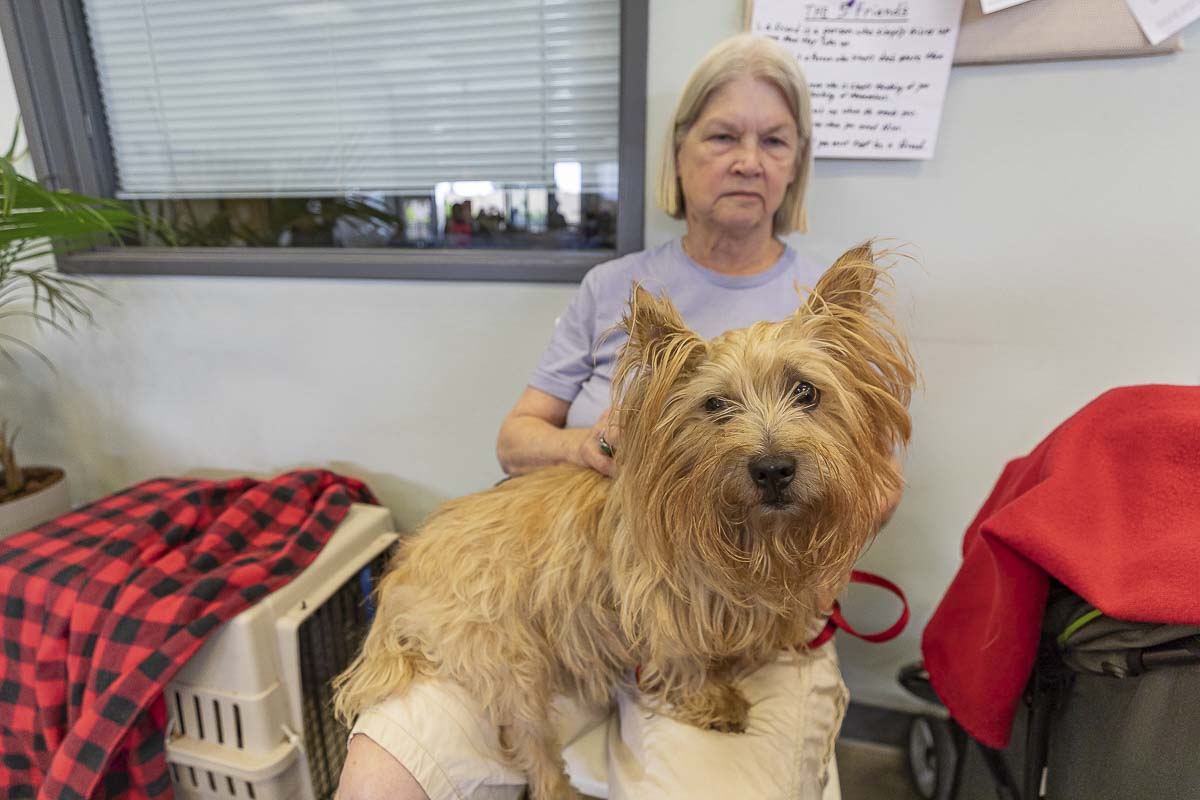
Brown says she stays at a women’s shelter during the night, then usually comes to the day center in the morning to find help looking for a new place to live. While there, she usually helps with making sure there’s fresh coffee in order to feel like she’s giving back. Even after she’s no longer homeless, Deborah says she plans to keep coming back to the day center to volunteer.
Neighbors growing more vocal
Share previously operated a day center out of the Friends of the Carpenter warehouse on West 20th Street in Vancouver. Jillian Daleiden, Share’s outreach program manager, says the goal was to eventually bring in showers and laundry facilities to that building, but it would have required significant building upgrades. That led to a search for a new place, with the former Fish and Wildlife building winning out against objections from neighbors.
For many of those neighbors, their worst fears have been realized.
“For me personally? I mean, it’s been night and day,” said Russell Palmiter at a recent City Council meeting. “I loved my house when I moved into it. I now have people shooting up in my backyard, I have people pooping regularly in my backyard.”
Palmiter is far from alone in his concerns. A Facebook group started by a handful of area residents now hosts well over 200 members, many of whom post regular updates about police activity, crime, and homeless encampments near the Navigation Center.
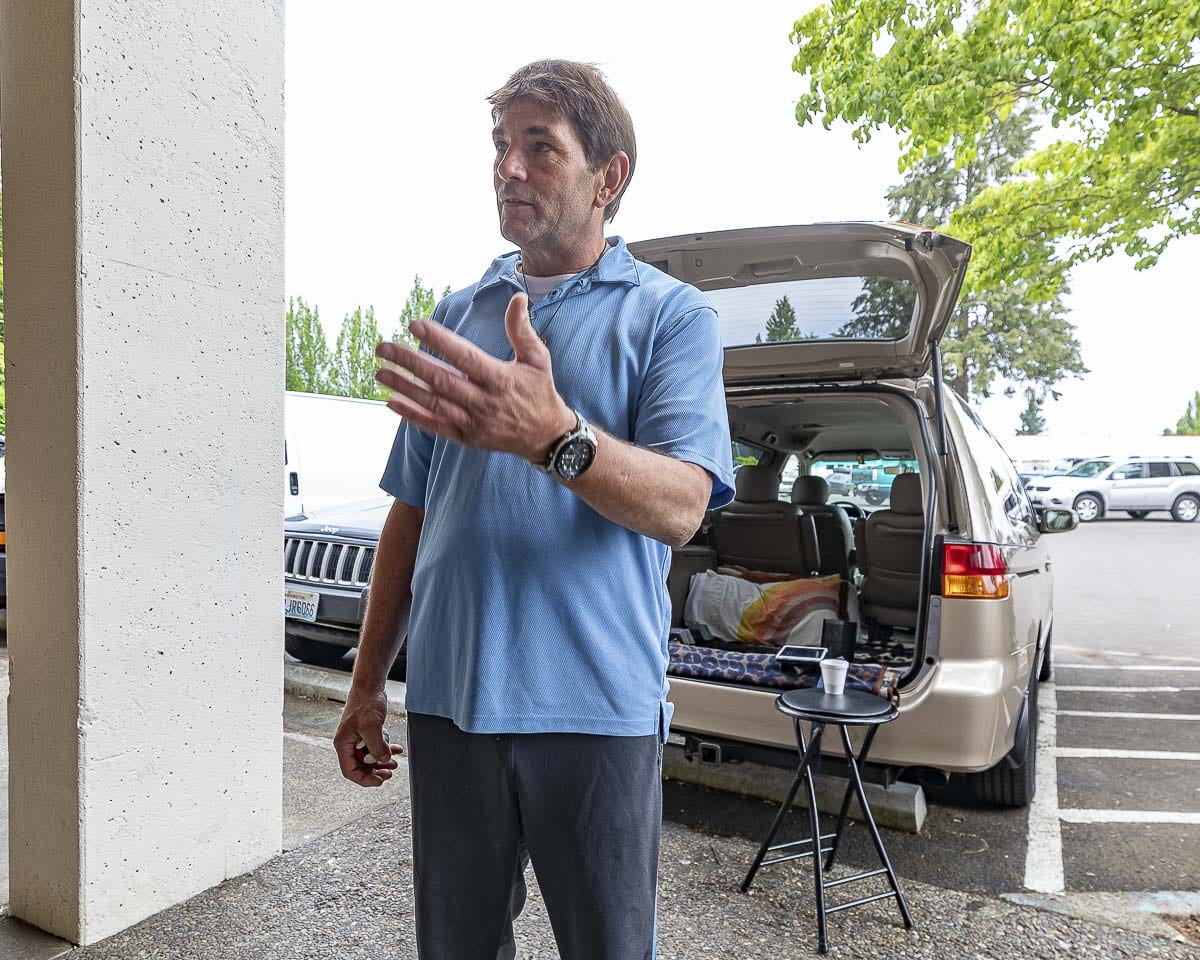
“Siting a no-barrier shelter in the middle of a residential area is something that neighbors in that area were strongly against,” said James Dougherty, one of the admins of the Facebook group, “and I don’t think a hard enough look was taken at actually what was going in there prior to it being placed there.”
Neighbors claim promises made during the planning process for the center have been broken. Staffing levels have remained largely stagnate, despite current use that is now triple the initial forecasts for the day center.
Dougherty also says they were promised that the fence around the facility would be at least six feet tall and “sight obscuring.”
“I believe all, or nearly all of the council members have been to the Navigation Center and you will note that the fence is not sight-obscuring,” Dougherty said.
Vancouver Police have been tracking crime stats for the area around the day center, and expect to have that full analysis in time for a neighborhood meeting at the facility on June 26. An initial review ordered by Mayor Pro Tem Bart Hansen showed no significant increase in police response around the area, but the percentage of incidents had shifted much closer to the shelter.
“I want to see these people helped as much as anyone does, but personally I think the center’s success metrics alone are fairly broken,” Palmiter told the council. “They seem to be around not how many people it helps, but how many people it serves.”
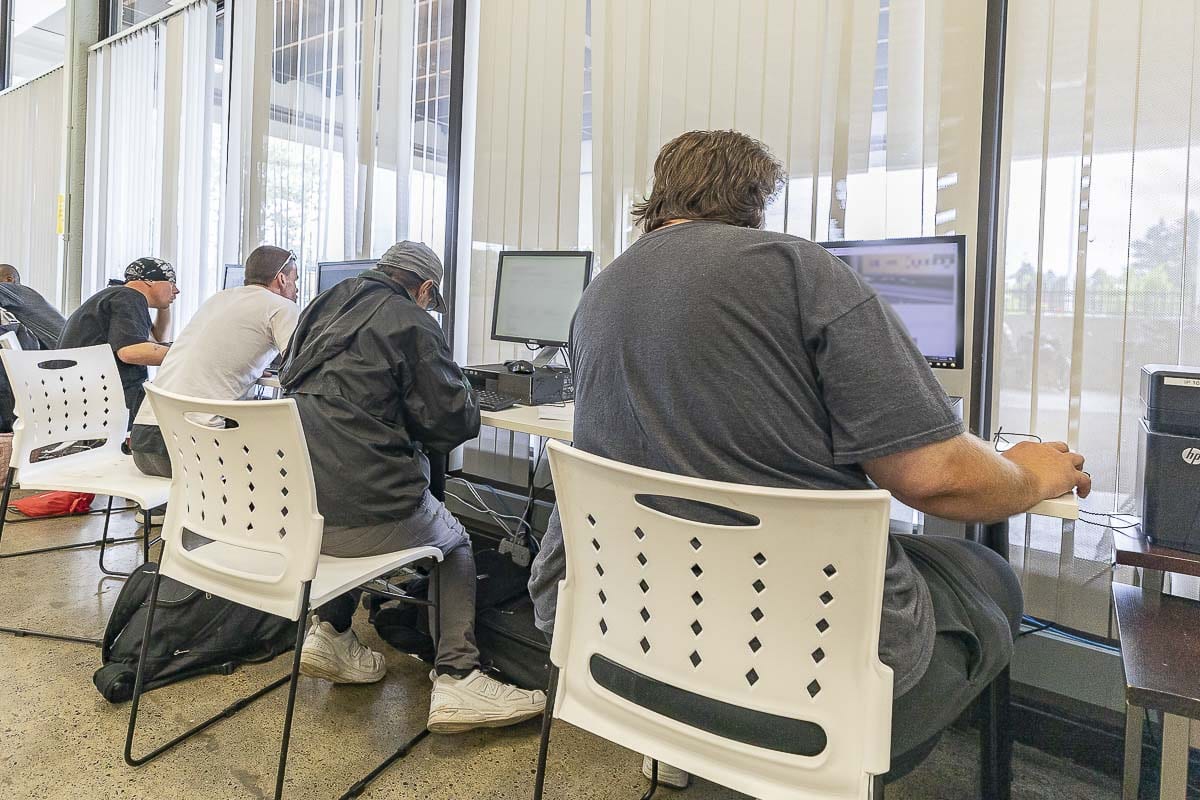
Daleiden admits that they have had to adjust to a homeless population that grew more quickly than first expected, but says things have improved since day one.
“We’ve revised and improved the just general day-to-day logistics including how we’ve arranged the physical space, our policies and procedures around various services, staffing numbers and staff training,” says Daleiden. “These changes have all been done to try to find better ways to operate with that increased number of clients who we’re serving and the services that we’re able to offer them.”
One of the shelter employees who spoke with ClarkCountyToday.com said things are much different now. For the first month there was no security at the day center, leading to numerous conflicts and dangerous situations for staff and people using the shelter. The city has since contracted with a security firm to have two people on site during operating hours, armed with tasers. Vancouver police officers also now routinely visit the day center, even visiting with people there in an effort to get to know them better.
The number of services provided has also grown to now include expanded hours for people to use the facility’s showers and laundry options. A calendar on the wall near the entrance lists a number of other area charities that come by the day center on a semi-regular basis, including veterinary services, dental care, mental health assistance, yoga, job search, and a needle exchange that Daleiden insists is not just a needle giveaway, contrary to what neighbors have said.
“I think we’ve made a lot of progress in the last six months, but we’re definitely looking to make even more progress in the next six months and going forward,” she says. “So we are always trying to improve.”
Part of that has been the monthly Good Neighbor meetings, which will move to every three months after this Wednesday. Representatives from Share, the city, the county, and Vancouver Police have shown up to speak with neighbors and ask for feedback. Regularly that has included the feeling that more should be done to secure the day center in order to keep a better record of who’s coming and going.
“We do try to have everybody come by the front desk,” Daleiden says. “And, to the best of our ability, make sure that everybody is checking in with the front desk so that we can track our numbers of how many people we’re serving.”
She does admit that the current paper-based system of tracking clients has been cumbersome, and says Share is working to incorporate more of a digital tracking system that could include issuing cards, though it wouldn’t limit who can enter the shelter during operating hours.
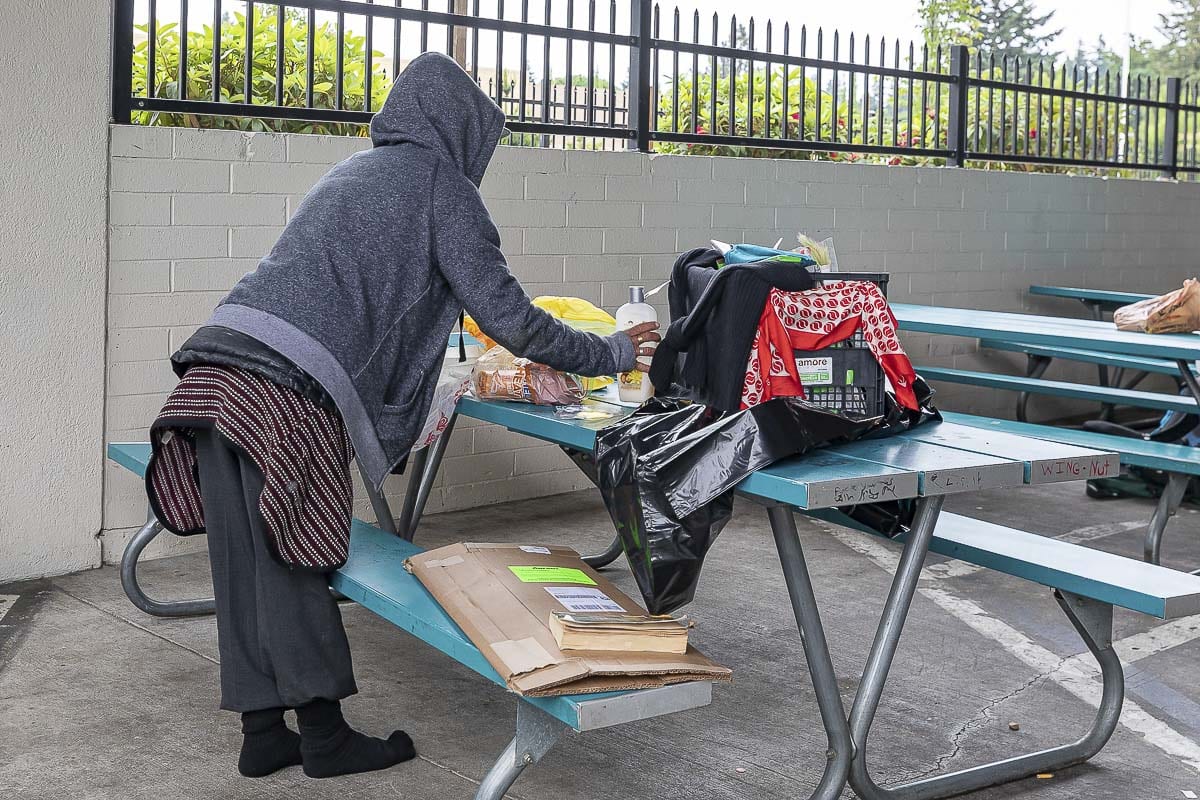
The people using the shelter say there has also been an increased awareness among their own population of the frustration in the surrounding neighborhood, and more of an effort at self-policing by many of them.
Danny Hessick wears a wooden cross around his neck and peppers his rapid-fire speech with religious references. He shows off the track marks on his arm, some of the bruises recent, and readily admits that he is wrestling every day with the demons that have haunted him since his days in Southern California where he was once a thriving small business owner.
Hessick has been on a list for permanent subsidized housing for months, something he gets help with checking into at the day center.
“It’s gonna be the biggest miracle, it’ll change my life,” Hessick says, arms outstretched and eyes closed as if in prayer. “Had this happened six months or a year ago, I probably would’ve messed it all up.”
Hessick says Share, along with other area homeless ministries, have given him a safe place and allowed him to recover part of his dignity. When he’s not sleeping on the couch at his Godparent’s house, he lives in a minivan that is meticulously clean. In that way, he says, he’s different from many of the other homeless individuals that surround him every day.
“You know, it’s not pretty to have a homeless camp pop up in your neighborhood,” says Hessick. “Some of these new IV users, they’re just doing it out in the open. They don’t try to conceal it and they leave their dirty syringes behind. Those are the people we get on.
“What I can tell (the neighbors), just have patience, God’s timing’s everything, and if it gets out of hand … you know, they cleaned up the Share House down there around the block, tent city, and so if it gets too much out of hand they’ll clean that situation up.”
But for some of the neighbors, that may come too late. Stacie Marshall owns Fabulous Flippin’ Treasures, a vintage shop on Fourth Plain, in-between the day center and Vancouver Park.
My business is their cut-through. It’s constant,” she told the council members. “I call it the blue tarp shopping cart trains.”
Marshall claims since the Navigation Center opened her daily sales have fallen between 40 and 60 percent, while she’s facing a 40 percent rent increase for the space.
“A 6,000-square-foot vintage mall that people will not come back and shop at because they are harassed continuously by homeless people,” she says, adding that they’ve dipped into personal savings trying to keep the business afloat.
“Right now it’s killing me,” she adds, and she’s not just being dramatic. Marshall has lupus, an auto-immune disease triggered by stress. She claims the parade of transients and the impact on her business now has her on three different medications just to stay sane.
And, while there has been improvement, assaults at the day center have happened. Vancouver police confirm that on Fri., June 14 someone threatened another man with a knife and pepper spray. When police responded the man refused to drop the pepper spray and was ultimately tased and arrested. No one else was injured, but people who photograph what goes on at the day center say that kind of thing is the norm, not the exception.
But Daleiden says it has actually become less frequent as many of the day center regulars, like Brown and Hessick, take ownership of the space and work to chase out trouble-makers.
“We are always constantly striving to improve ourselves. And also, our participants are getting more used to one, just us. So building relationships with our staff, they’re getting more used to the policies that we have,” she says. “And yeah, I think, you know, some of them are taking some ownership of the day center, and they want this to be a place that they can safely access. And they want it to be a welcoming environment for everyone.”
A complicated issue
In our time inside the day center, it’s easy to see that there is no quick and ready solution. With armed guards on duty, outright aggression appears to be kept relatively in check, at least inside the fenced-in area. But staccato outbursts of profanity still pepper the air, one man holds a long stick he’s pulled from a pile of possessions, another woman rambles ceaselessly under her breath to no one in particular. Tension is always present, but many of the attendees have simply learned to live with it. It’s part of their every day existence.
As recent numbers make clear, homelessness in Clark County and all around the area is a complicated mix of people struggling to make ends meet, or keep up with the rising cost of rent or housing, people dealing with substance abuse, mental illness, and everything in-between. The challenge for organizations like Share is that they can’t simply turn people away because of their past, or even present, problems. As difficult as things have been for the neighbors, the Navigation Center does represent perhaps the best in terms of location, space, and access for those who need it.
“The new location that we’re currently at is much more easily accessible by public transportation,” Daleiden points out. “And a lot of the clients that we serve, use public transportation to get around. And so it makes it if we’re more easily accessible, then it means that more people can access the services that they may need. We’re also more centrally located in general now, which I think is a benefit, because again, it just makes the center more accessible to a wider range of people. And not just people who are living in the downtown area.”
To the credit of neighbors complaining about the influx of homeless to their area, most have not demanded that the Navigation Center be closed — at least not permanently. Many have asked the city to consider at least temporarily closing the day center while best practices are examined and policies are clarified.
A move that drastic seems unlikely, at least without an alternative location readily available. But city officials insist they are listening, and open to making changes to improve the situation.
ClarkCountyToday.com will continue to follow up on the Navigation Center, along with other issues surrounding the area’s homelessness situation.
Also read parts one and two:
Central Vancouver residents unhappy with new Homeless Navigation Center

Vancouver Police working to address Homeless Navigation Center complaints
